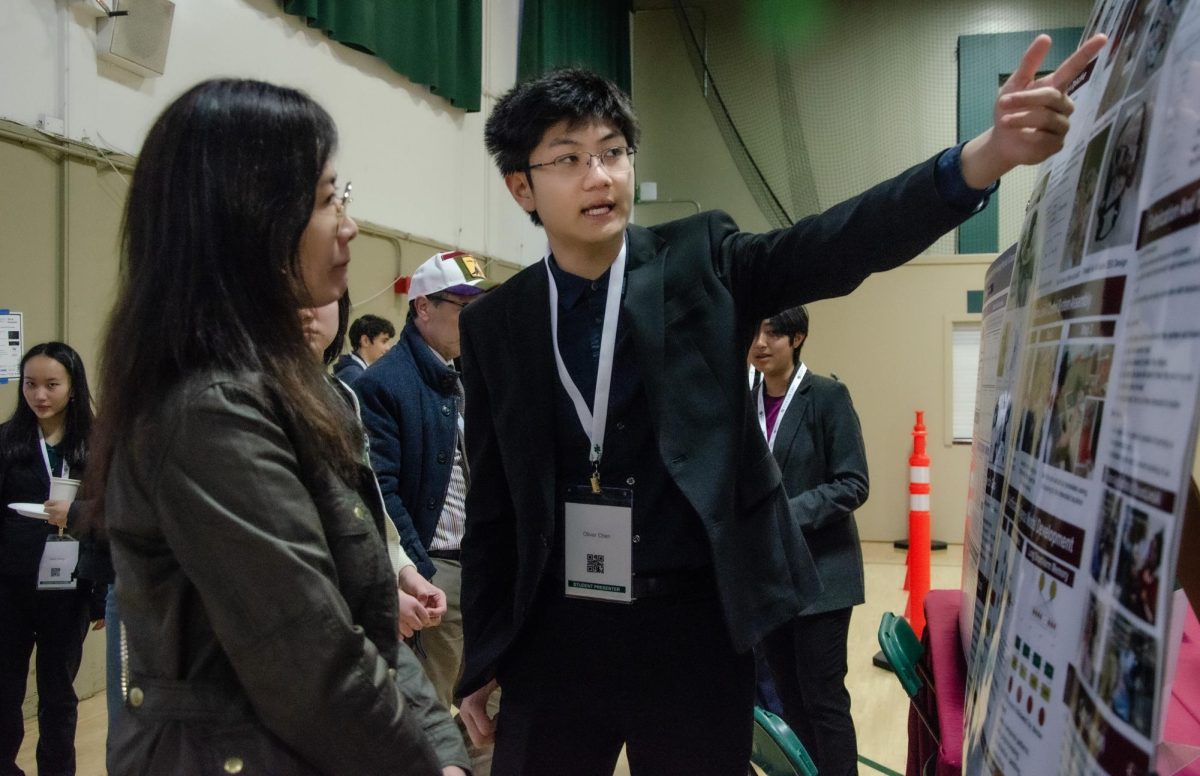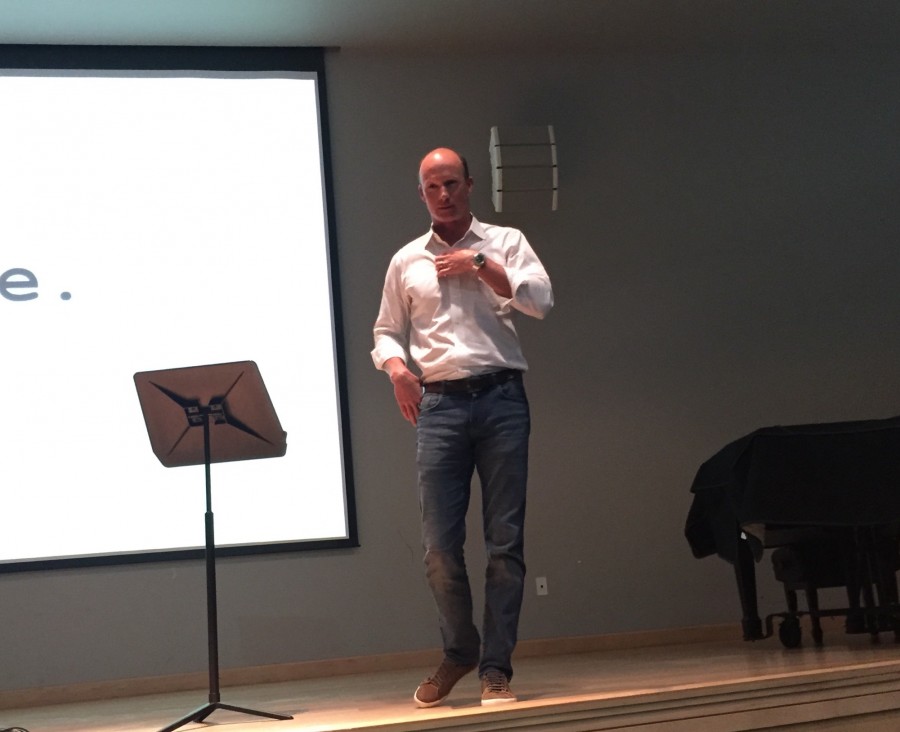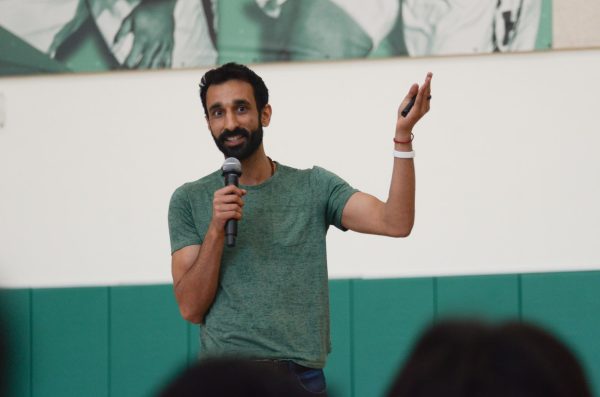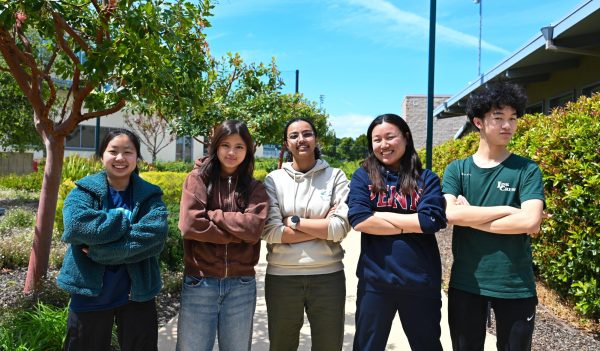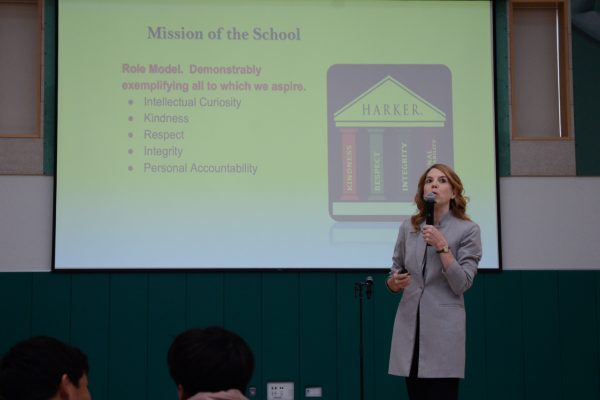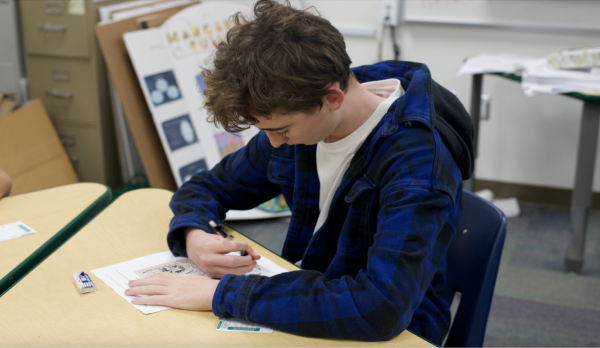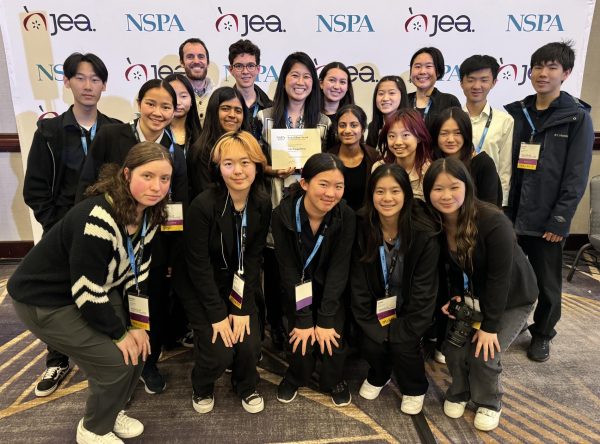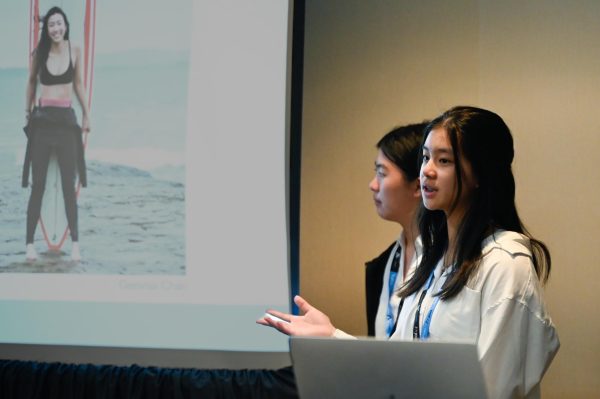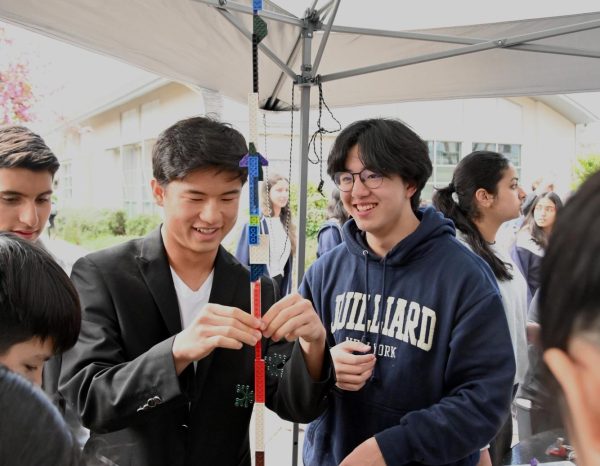Philosophy Club hosts first annual conference
Author and teacher Jack Bowen presents the closing address in the philosophy club’s first annual conference, discussing happiness and fulfillment. Due to delay, the conference ended 40 minutes later than had initially been planned.
March 12, 2016
The upper school’s philosophy club hosted its first annual conference in Nichols Hall today from 9 a.m. to 12:40 p.m. to promote philosophical discourse among the student body.
The conference opened with a keynote address from Stanford Professor of Political Science and Philosophy (by courtesy) Dr. Rob Reich, whose talk examined social justice and equality through the lens of abstract philosophical thought. In his hour long talk, Reich emphasized philosophy’s relevance in everyday life.
“It’s unbelievably relevant,” Reich said. “It’s urgent, it awakens in you questions, passions, emotion, reason that infects every aspect of your life. You have to see philosophy as an activity, not as just subject matter to be committed to memory.”
Towards the end of his lecture, Reich descended from the stage and used the Socratic method to engage the audience of students, parents, and faculty in a thought experiment concerning Peter Singer’s “The Drowning Child” hypothetical.
After a 15-minute refreshment break, attendees divided to attend two of the three discussion sessions offered: “Security vs. Privacy,” “Absolute Equality: the Political Philosophy of John Rawls” and “Supreme Court.” Philosophy club officers Michael “Misha” Tseitlin (11), Srivatsav Pyda (11) and Tiffany Zhu (11) moderated the sessions.
In Misha’s session on privacy, students, using the trolley problem as guide, applied the ideas of utilitarianism and deontology to analyze and debate Apple and the U.S. government’s legal battle over phone encryption. During Srivatsav’s session on distributive justice, students considered the questions of inequality and privilege through Rawls’ “veil of ignorance” simulation.
Tiffany moderated the third session, which focused on constitutional ethics.
“My session concerned some recent controversies regarding people denying services to same-sex couples,” Tiffany said. “Specifically it looked at whether anti-discrimination laws or the religious liberty of the people denying them services should be heard.”
Speaking to the productive nature of the discussion, Tiffany explained that many students were already acquainted with the topics, which allowed for thorough, constructive dialogue.
“I think many of the students were pretty well informed,” Tiffany said. “I think that people have probably been following this on Facebook and other social media, so they had an idea of the extent of the debate, and how this debate would affect different people.”
Jack Bowen, a teacher at Menlo School whose novels have been featured on Amazon’s Top 500 books, presented the closing address. Influenced by advice his father had imparted to him, Bowen’s speech focused on fulfillment and happiness.
“Going forward, especially when you don’t feel like it, is where the prevalent, profound virtue happens,” Bowen said. “That’s where you get the real happiness, not the bliss that people claim to be striving for.”































![Setter Emma Lee (9) sets the ball to the middle during the match against Pinewood on Sept. 12. “[I’m looking forward to] getting more skilled, learning more about my position and also becoming better friends with all of my teammates, Emma said.](https://harkeraquila.com/wp-content/uploads/2023/09/DSC_4917-2-1200x795.jpg)


































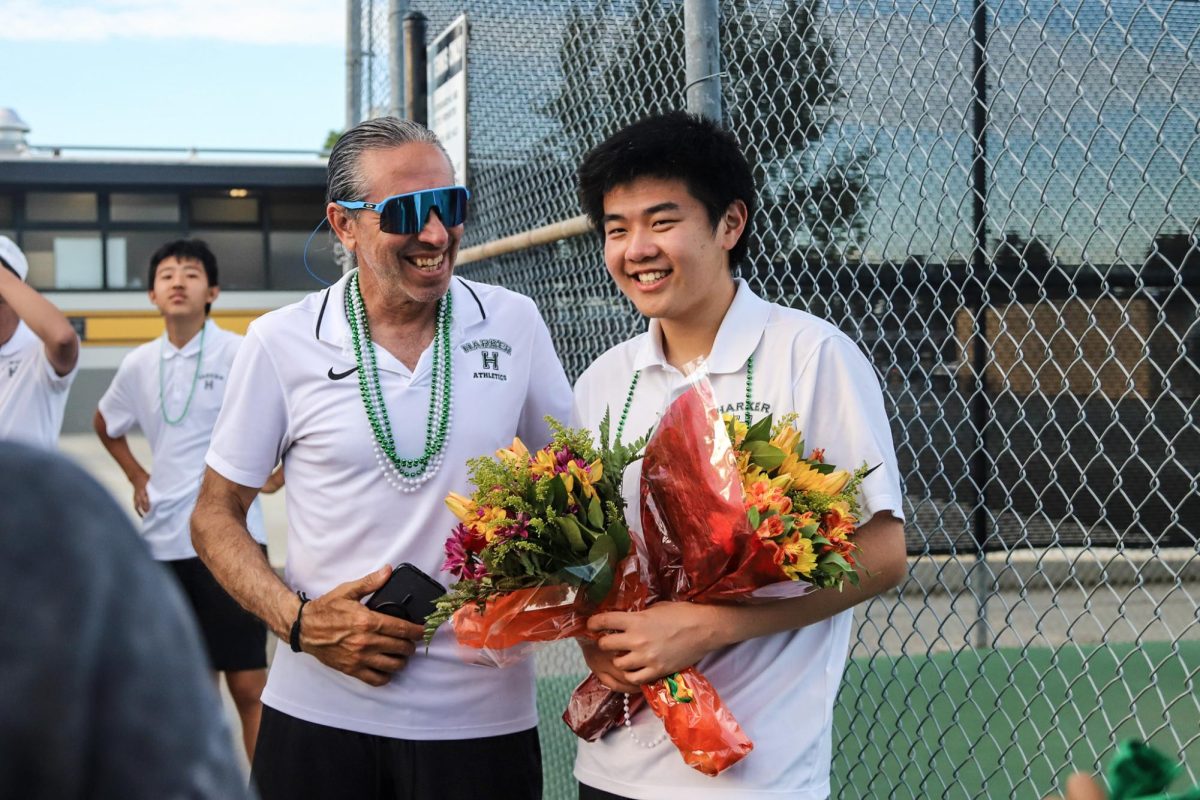












































![“[Building nerf blasters] became this outlet of creativity for me that hasnt been matched by anything else. The process [of] making a build complete to your desire is such a painstakingly difficult process, but Ive had to learn from [the skills needed from] soldering to proper painting. Theres so many different options for everything, if you think about it, it exists. The best part is [that] if it doesnt exist, you can build it yourself, Ishaan Parate said.](https://harkeraquila.com/wp-content/uploads/2022/08/DSC_8149-900x604.jpg)


![“Animation just clicked in a way. I had been interested in art, but that felt different. [Animation] felt like it had something behind it, whereas previous things felt surface level. I wasnt making that crazy of things, but just the process of doing it was much more enjoyable, Carter Chadwick (22) said.](https://harkeraquila.com/wp-content/uploads/2022/08/Screen-Shot-2022-08-16-at-9.44.08-AM-900x598.png)


![“When I came into high school, I was ready to be a follower. But DECA was a game changer for me. It helped me overcome my fear of public speaking, and its played such a major role in who Ive become today. To be able to successfully lead a chapter of 150 students, an officer team and be one of the upperclassmen I once really admired is something Im [really] proud of,” Anvitha Tummala (21) said.](https://harkeraquila.com/wp-content/uploads/2021/07/Screen-Shot-2021-07-25-at-9.50.05-AM-900x594.png)



![“[Volleyball has] taught me how to fall correctly, and another thing it taught is that you don’t have to be the best at something to be good at it. If you just hit the ball in a smart way, then it still scores points and you’re good at it. You could be a background player and still make a much bigger impact on the team than you would think,” Anya Gert (’20) said.](https://harkeraquila.com/wp-content/uploads/2020/06/AnnaGert_JinTuan_HoHPhotoEdited-600x900.jpeg)

![“Im not nearly there yet, but [my confidence has] definitely been getting better since I was pretty shy and timid coming into Harker my freshman year. I know that theres a lot of people that are really confident in what they do, and I really admire them. Everyones so driven and that has really pushed me to kind of try to find my own place in high school and be more confident,” Alyssa Huang (’20) said.](https://harkeraquila.com/wp-content/uploads/2020/06/AlyssaHuang_EmilyChen_HoHPhoto-900x749.jpeg)













![“My slogan is ‘slow feet, don’t eat, and I’m hungry.’ You need to run fast to get where you are–you arent going to get those championships if you arent fast,” Angel Cervantes (12) said. “I want to do well in school on my tests and in track and win championships for my team. I live by that, [and] I can do that anywhere: in the classroom or on the field.”](https://harkeraquila.com/wp-content/uploads/2018/06/DSC5146-900x601.jpg)

![“I think getting up in the morning and having a sense of purpose [is exciting]. I think without a certain amount of drive, life is kind of obsolete and mundane, and I think having that every single day is what makes each day unique and kind of makes life exciting,” Neymika Jain (12) said.](https://harkeraquila.com/wp-content/uploads/2017/06/Screen-Shot-2017-06-03-at-4.54.16-PM.png)






